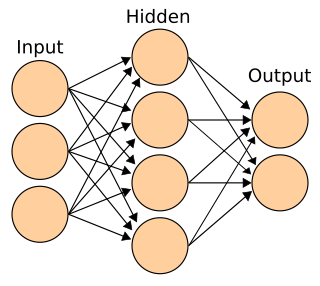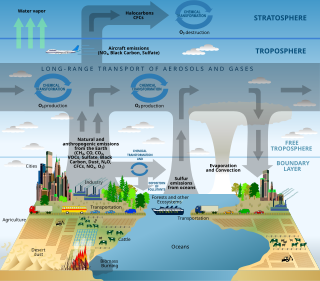
Cognitive science is the interdisciplinary, scientific study of the mind and its processes with input from linguistics, psychology, neuroscience, philosophy, computer science/artificial intelligence, and anthropology. It examines the nature, the tasks, and the functions of cognition. Cognitive scientists study intelligence and behavior, with a focus on how nervous systems represent, process, and transform information. Mental faculties of concern to cognitive scientists include language, perception, memory, attention, reasoning, and emotion; to understand these faculties, cognitive scientists borrow from fields such as linguistics, psychology, artificial intelligence, philosophy, neuroscience, and anthropology. The typical analysis of cognitive science spans many levels of organization, from learning and decision to logic and planning; from neural circuitry to modular brain organization. One of the fundamental concepts of cognitive science is that "thinking can best be understood in terms of representational structures in the mind and computational procedures that operate on those structures."

Educational psychology is the branch of psychology concerned with the scientific study of human learning. The study of learning processes, from both cognitive and behavioral perspectives, allows researchers to understand individual differences in intelligence, cognitive development, affect, motivation, self-regulation, and self-concept, as well as their role in learning. The field of educational psychology relies heavily on quantitative methods, including testing and measurement, to enhance educational activities related to instructional design, classroom management, and assessment, which serve to facilitate learning processes in various educational settings across the lifespan.

Learning theory describes how students receive, process, and retain knowledge during learning. Cognitive, emotional, and environmental influences, as well as prior experience, all play a part in how understanding, or a world view, is acquired or changed and knowledge and skills retained.

Natural language processing (NLP) is a subfield of linguistics, computer science, and artificial intelligence concerned with the interactions between computers and human language, in particular how to program computers to process and analyze large amounts of natural language data. The goal is a computer capable of "understanding" the contents of documents, including the contextual nuances of the language within them. The technology can then accurately extract information and insights contained in the documents as well as categorize and organize the documents themselves.

Cognitive neuroscience is the scientific field that is concerned with the study of the biological processes and aspects that underlie cognition, with a specific focus on the neural connections in the brain which are involved in mental processes. It addresses the questions of how cognitive activities are affected or controlled by neural circuits in the brain. Cognitive neuroscience is a branch of both neuroscience and psychology, overlapping with disciplines such as behavioral neuroscience, cognitive psychology, physiological psychology and affective neuroscience. Cognitive neuroscience relies upon theories in cognitive science coupled with evidence from neurobiology, and computational modeling.

An academic discipline or field of study is a branch of knowledge, taught and researched as part of higher education. A scholar's discipline is commonly defined by the university faculties and learned societies to which they belong and the academic journals in which they publish research.

Connectionism is an approach in the field of cognitive science that hopes to explain mental phenomena using artificial neural networks (ANN). Connectionism presents a cognitive theory based on simultaneously occurring, distributed signal activity via connections that can be represented numerically, where learning occurs by modifying connection strengths based on experience.
Social learning theory is a theory of learning process and social behavior which proposes that new behaviors can be acquired by observing and imitating others. It states that learning is a cognitive process that takes place in a social context and can occur purely through observation or direct instruction, even in the absence of motor reproduction or direct reinforcement. In addition to the observation of behavior, learning also occurs through the observation of rewards and punishments, a process known as vicarious reinforcement. When a particular behavior is rewarded regularly, it will most likely persist; conversely, if a particular behavior is constantly punished, it will most likely desist. The theory expands on traditional behavioral theories, in which behavior is governed solely by reinforcements, by placing emphasis on the important roles of various internal processes in the learning individual.

Constructivism is a theory in education that recognizes learners construct new understandings and knowledge, integrating with what they already know. This includes knowledge gained prior to entering school. It is associated with various philosophical positions, particularly in epistemology as well as ontology, politics, and ethics. The origin of the theory is also linked to Jean Piaget's theory of cognitive development.
Learning sciences (LS) is an interdisciplinary field that works to further scientific, humanistic and critical theoretical understanding of learning as well as to engage in the design and implementation of learning innovations, and the improvement of instructional methodologies. LS research traditionally focuses on cognitive-psychological, social-psychological, cultural-psychological and critical theoretical foundations of human learning, as well as practical design of learning environments. Major contributing fields include cognitive science, computer science, educational psychology, anthropology, and applied linguistics. Over the past decade, researchers have expanded their focus to include the design of curricula, informal learning environments, instructional methods, and policy innovations.

A neural network is a network or circuit of neurons, or in a modern sense, an artificial neural network, composed of artificial neurons or nodes. Thus a neural network is either a biological neural network, made up of biological neurons, or an artificial neural network, for solving artificial intelligence (AI) problems. The connections of the biological neuron are modeled in artificial neural networks as weights between nodes. A positive weight reflects an excitatory connection, while negative values mean inhibitory connections. All inputs are modified by a weight and summed. This activity is referred to as a linear combination. Finally, an activation function controls the amplitude of the output. For example, an acceptable range of output is usually between 0 and 1, or it could be −1 and 1.
This is an index of education articles.

Scientific modelling is a scientific activity, the aim of which is to make a particular part or feature of the world easier to understand, define, quantify, visualize, or simulate by referencing it to existing and usually commonly accepted knowledge. It requires selecting and identifying relevant aspects of a situation in the real world and then using different types of models for different aims, such as conceptual models to better understand, operational models to operationalize, mathematical models to quantify, computational models to simulate, and graphical models to visualize the subject.
In philosophy of mind, the computational theory of mind (CTM), also known as computationalism, is a family of views that hold that the human mind is an information processing system and that cognition and consciousness together are a form of computation. Warren McCulloch and Walter Pitts (1943) were the first to suggest that neural activity is computational. They argued that neural computations explain cognition. The theory was proposed in its modern form by Hilary Putnam in 1967, and developed by his PhD student, philosopher, and cognitive scientist Jerry Fodor in the 1960s, 1970s, and 1980s. Despite being vigorously disputed in analytic philosophy in the 1990s due to work by Putnam himself, John Searle, and others, the view is common in modern cognitive psychology and is presumed by many theorists of evolutionary psychology. In the 2000s and 2010s the view has resurfaced in analytic philosophy.
In education, computational thinking (CT) is a set of problem-solving methods that involve expressing problems and their solutions in ways that a computer could also execute. It involves automation of processes, but also using computing to explore, analyze, and understand processes.
Informatics is the study of computational systems, especially those for data storage and retrieval. According to ACM Europe andInformatics Europe, informatics is synonymous with computer science and computing as a profession, in which the central notion is transformation of information. In other countries, the term "informatics" is used with a different meaning in the context of library science.
Learning analytics is the measurement, collection, analysis and reporting of data about learners and their contexts, for purposes of understanding and optimizing learning and the environments in which it occurs. The growth of online learning since the 1990s, particularly in higher education, has contributed to the advancement of Learning Analytics as student data can be captured and made available for analysis. When learners use an LMS, social media, or similar online tools, their clicks, navigation patterns, time on task, social networks, information flow, and concept development through discussions can be tracked. The rapid development of massive open online courses (MOOCs) offers additional data for researchers to evaluate teaching and learning in online environments.
Michael Kearns is an American computer scientist, professor and National Center Chair at the University of Pennsylvania, the founding director of Penn's Singh Program in Networked & Social Systems Engineering (NETS), the founding director of Warren Center for Network and Data Sciences, and also holds secondary appointments in Penn's Wharton School and department of Economics. He is a leading researcher in computational learning theory and algorithmic game theory, and interested in machine learning, artificial intelligence, computational finance, algorithmic trading, computational social science and social networks. He previously led the Advisory and Research function in Morgan Stanley's Artificial Intelligence Center of Excellence team, and is currently an Amazon Scholar within Amazon Web Services.
This glossary of artificial intelligence is a list of definitions of terms and concepts relevant to the study of artificial intelligence, its sub-disciplines, and related fields. Related glossaries include Glossary of computer science, Glossary of robotics, and Glossary of machine vision.








